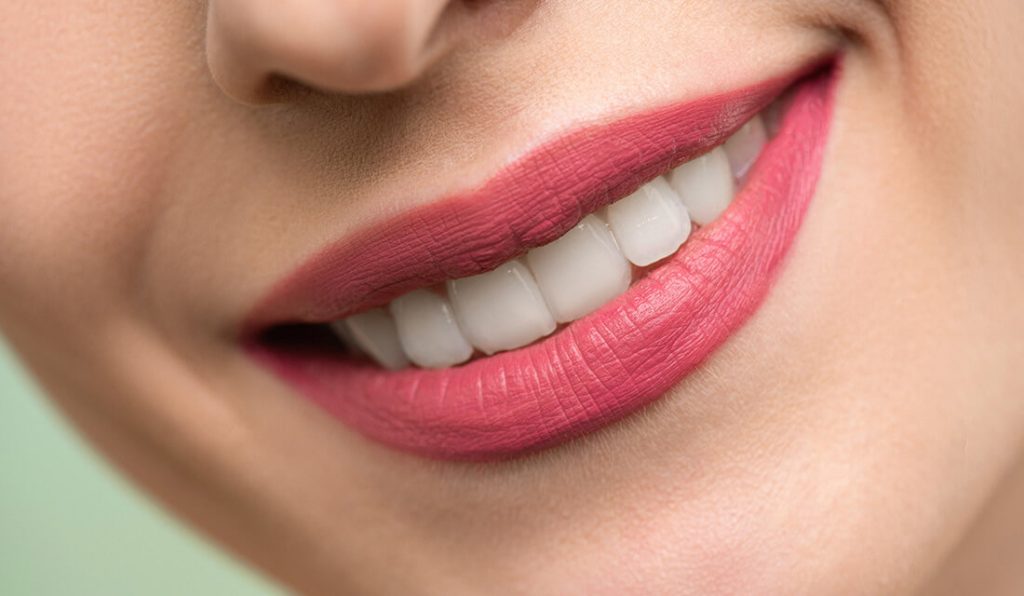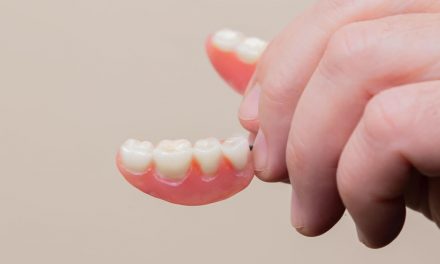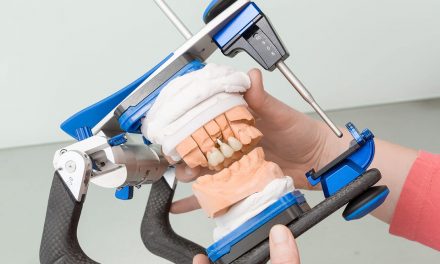Do you need new dentures? Here are five important questions that you should ask your dentist before you make this very important decision.
The decision to get a denture is not easy, but it is important for your overall physical health and wellbeing. In most cases, missing teeth should be replaced. Tooth gaps not only affect your appearance negatively, but they can also affect your health. Neighbouring teeth can move into the gap or start tilting. This can affect your bite, which in turn can impair the function of the temporomandibular joints. A functional disorder of the temporomandibular joints can cause craniomandibular dysfunction or CMD, which can affect other parts of the body, i.e. the back, pelvis, hips, organs, etc.
In addition, your eating behaviour can be influenced by missing teeth. If your food is not chewed well enough, your digestion can be disrupted. If there are several missing teeth, or a badly fitting denture, patients often don’t eat certain foods at all, for example crispy apples and raw vegetables, which can lead to deficiencies in your diet.
In most cases, missing teeth should be replaced. Tooth gaps not only affect your appearance negatively, but they can also affect your health.
So this is your decision, dealing with your dentures, and your health. You are not just making a decision to have new teeth – you are in fact opting for health, well-being and an efficient bite. Not to mention that beautiful smile!
Basically, a person’s teeth are as individual as fingerprints. Therefore, dentures must be individually designed and look natural. Using their skill and the sophisticated technologies and materials of dentistry today, dentists and dental technicians are able to perfectly reproduce the shape, colour and position of each tooth.

The 5 questions you should ask your dentist about your new dentures
We at Next-Smile-Dental have put together these five questions with which you as a patient should approach your dentist.
- Will my new dentures be fixed or removable, and which of those two options will be better for me?
The answer will depend largely on your oral situation. Fixed dentures are usually recommended for individual tooth gaps. If many teeth are missing, either a removable prosthesis or a fixed implant denture is a possibility. Discuss all the alternatives with your dentist. Implants may also be a good option for you, but there are other good solutions, too. - What material will my new dentures be made of?
For a good denture, materials are required that are similar in strength and colour to a natural tooth substance. Nowadays the different options include metal alloys, titanium, glass ceramics, oxide ceramics (like zirconium oxide), composites in various combinations, as well as hybrid materials. It is very important that you are compatible with the material used, and that you do not have an allergic reaction to it, as is sometimes the case with nickel, for instance. If you are aware of something like this, you must inform your dentist about it and discuss alternatives. - Where will my new dentures be made, and by whom?
Perfect dentures are important to your well-being, so make sure that your new teeth are made by a specialist. The dentist is responsible for the dental prosthesis on the medical side, and a dental technician is often responsible for the technical side. Dentures that meet all the medical and technical requirements and standards are handcrafted and unique; a masterpiece, in fact. You can confidently expect your specialist to have extensive knowledge of the field of materials science. You can also rest assured that your specialist will know about the proper processing of these materials, and will also have specialised knowledge of the anatomy and functions of the masticatory system. Don’t hesitate to ask your dentist who will be making your new dentures – after all, your new smile and your health could be affected here! - How long will these new dentures last and how should I care for my new teeth?
A denture should literally last for decades. However, this is not always the case as the patient’s health, or the state of their mouth might change. In that event that more natural teeth may be lost in the near future, the dentures should be expandable to accommodate more teeth.Oral hygiene and the proper care of the dentures are also factors to be considered as the patient’s dexterity may decrease with age, as can their eyesight which might affect their ability to manage complex oral hygiene measures. The highest quality dentures could become virtually useless if they can’t be properly cared for. So talk to your dentist about the denture care measures required before deciding on a denture that may be too complicated. - What will my new dentures cost and are there alternatives that are less expensive?
Let’s first ask a counter question – what does a car cost? As we all know, there are many different makes and models, varying from small ones to large luxury cars. Therefore, prices vary greatly depending on technical specifications and special performance features.It is similar with dentures, but now it is about your health. There are various types of dentures – removable, fixed, or implant-supported. In addition, the materials used and the varying implementation options, for example the individual colour, shape and design analysis, will all influence the cost. The cost of dentures will also depend on the oral situation of the patient, as well as the patient’s expectations and requirements. All this should be discussed in detail with your dentist early on.





